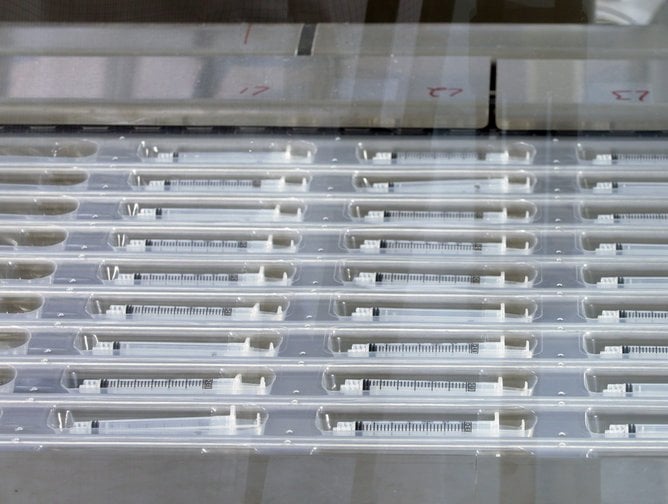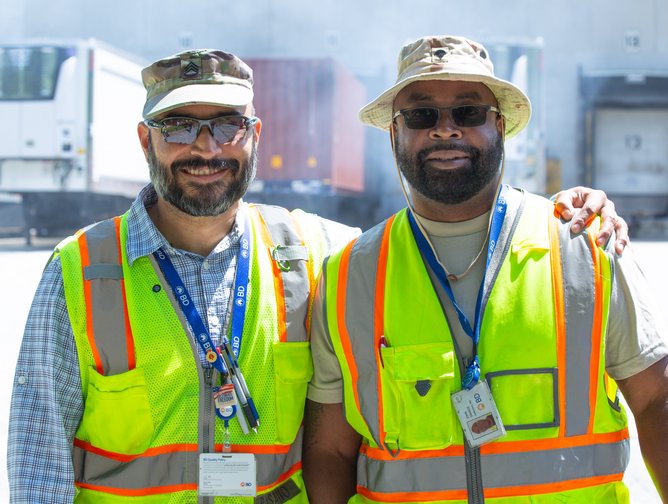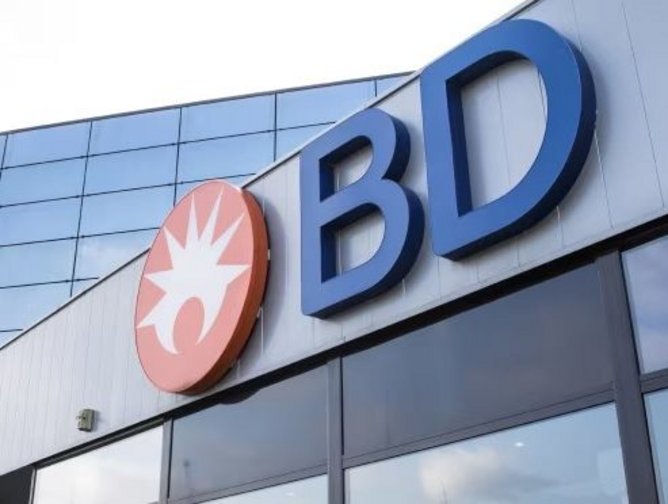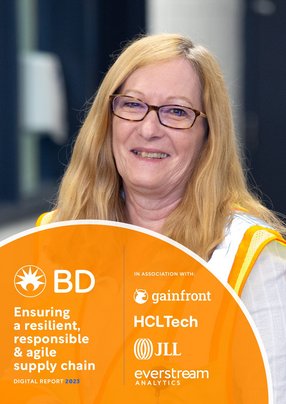BD: Ensuring a resilient, responsible & agile supply chain
Kevin Nelson is the Chief Procurement Officer at BD (Becton, Dickinson and Company), a medical technology company based in Franklin Lakes, New Jersey. His responsibilities include overseeing all third-party spend, including direct and indirect.
“I've been in the procurement profession for a number of years, starting my career in the high-tech industry and evolving into roles within the biotechnology arena before leading strategic sourcing at C. R. Bard, a medical device company that BD acquired about six years ago,” he says.
BD is one of the world's largest medical technology companies. Its purpose is ‘advancing the world of health’ by improving medical discovery, diagnostics and the delivery of care.
“Roughly 90% of patients coming into a clinical setting in the United States are going to use a BD product,” says Nelson.
Products vary from well-known medical devices such as needles, syringes and blood collection tubes to sophisticated electromechanical devices, diagnostic instruments and reagents.
Mitigating supply chain disruptions
COVID-19 changed the world forever - hybrid working is the new normal, face masks are as common as earrings and you never leave your house without your keys, wallet, phone and hand sanitizer. The post-pandemic planet changed the procurement process too, especially for those dealing with medical equipment.
“The world has changed and our supply chains need to adapt,” said Nelson. “When we look at the environment, or the world around us right now, we are continuing to see more disruptions every year. We've been tracking this, not only within BD, but also within the healthcare and the life sciences industry.”
More frequent disruptions in the supply chain are happening year over year, which include plant shutdowns, supplier shutdowns, supplier insolvency, port strikes, geopolitical tensions and more.
“All these things result in some sort of disruption to the supply chain,” says Nelson. “We have continued to see that and experience it. That has led us to asking, what do we need to do differently? Because we're probably not going to get back to this ‘normal’ that everyone's been waiting for. BD has taken this ‘moment’ to lead a ‘movement’ to create the supply chain of the future, and that all starts with enhanced supply chain visibility and agility.”
This “movement” at BD has resulted in multiple initiatives to evolve procurement strategies to be more resilient, agile and socially responsible.
Creating enhanced visibility through artificial intelligence (AI) and machine learning
“To start building our supply chain of the future, we mapped our product lines to identify which ones are considered critical to healthcare,” Nelson explains. “These are products that the healthcare industry has deemed essential to care for the patients, and if they aren't on the market, there'll be a problem around meeting basic or routine healthcare needs.”
BD identified over a hundred different product lines that are critical to healthcare. Nelson and his team conducted an assessment on every product line, looking at every item in the bills of materials and ensured remediation is in place for the critical high-risk materials.
“A product line may have a few items in the bill of materials, or it may have a few hundred items. We do an assessment on every item in that bill of materials and on every supplier, to see where potential risks are.”
BD creates a composite score that allows them to plot product lines to see which ones are in a high-risk quadrant.
“We can take that back to our business units and work with them to create mitigation plans to dual source, adjust inventory levels, and/or regionally source some of the material or components.”
As part of the work to de-risk high-priority products, BD uses discovery technology that employs AI and machine learning to map sub-tier supply chains for critical products and leveraged that visibility to uncover hidden risks in its suppliers’ extended supply chains.
“During COVID-19, 80% of BD’s supply chain disruptions didn’t come from our direct suppliers,” Nelson adds. “They came from our suppliers’ suppliers or even three or four levels down the chain. Unless you have mapped your entire supply chain and employ very sophisticated technology, it is very hard to know how a disruption at a 3rd or 4th tier supplier will impact your product.”
An example of the payoff of this work was a recent paper strike in Finland. Because BD mapped the supply chain, the procurement team knew that pulp from Finland was used in medical grade labels the company uses and that there were very few alternate suppliers. BD received early warning signals from the risk intelligence partner along with the visibility to understand the issue early on, work with its partners to find alternate sources and secure inventory of labels well in advance of other companies or industries that would be vying for the same label stock.
Creating a socially and environmentally responsible supply chain
BD knows its customers want them to provide high-quality products at a fair price and that they expect more than the basics. Improved resiliency, visibility and agility are adding value, but the company is also focusing on sustainable business practices that are environmentally, ethically and socially responsible.
“At BD, we stay true to our values, including doing what is right. We set up the Responsible Sourcing Program to ensure we embed supplier responsibility and sustainability in every purchasing decision we make,” Nelson explains.
This includes partnering with ethical and diverse suppliers, helping protect human rights and working to ensure environmental stewardship.
“Our customers want to understand the bigger picture too,” Nelson explains. “Are they buying a product from us that is sourced from an ethical and responsible supplier that is paying fair wages to its workers?”
BD ensures compliance in these areas through ongoing assessments, desktop and face-to-face audits and close partnerships across its supply base. This is all to ensure that suppliers understand exactly what BD expects when doing business with them, while also making sure risks are anticipated and managed effectively.
Like most companies, Nelson and his team have certainly found some areas of concern in their network that need to improve.
“Instead of moving away from that supplier and letting it be someone else's problem, we've tried to see how we can work with them to identify an area they need to improve in. If they're able to, that's great. If not, then we'd have to move away. So far, we've been successful in mitigating issues. We're working to help improve human rights around the world while ensuring important medical products get to those who need them.”
Another focus area of BD’s Responsible Sourcing Program is supplier sustainability. This examines where suppliers are driving reductions in greenhouse gases, diverting waste away from landfills and understanding how much renewable energy they use. The Responsible Sourcing team is also working internally with product stewardship and category management to develop and implement strategies to eliminate materials of concern where possible.
“The Supplier Sustainability pillar includes working alongside our R&D team and business units to identify products, materials and components that are ‘greener’ in nature while also making products that are more effective, efficient and economical,” Nelson explains. “This might be a packaging component that uses less energy to make or is recyclable.”
In 2022, BD launched the Sustainable Medical Technology Institute, a model of practice within the organisation that brings together BD researchers and engineers, as well as quality, regulatory, policy, sourcing and operational expertise, to focus on reducing the environmental impact of the company's product portfolio in three areas: adopting sustainable product design strategies, developing and deploying sustainable sterilisation technologies, and addressing materials of concern (MOC).
The third area of focus of the Responsible Sourcing Program is supplier diversity, which has gained a lot of momentum in the US.
“We pivoted our supplier diversity focus from one that historically assessed our spend with small businesses and diverse suppliers, which was more of a reactive approach. Today, we are looking at economic impact in terms of how we’re helping different regions and local economies by using diverse and small businesses that are truly making an impact. We’re looking at how we can help a community where our customers are living," explains Nelson.
Finally, there’s end-to-end transparency, which is connecting back to the customer and providing enhanced visibility to them. “The key is providing this information proactively and transparently to the customers, to the patients, before it's a problem, so they have the ability to do something in advance.”
Medical manufacturing partnerships & resilient supply chains
As with any medical manufacturer, BD’s partner ecosystem is vast.
“Partnering with our customers upfront is a key priority for BD. We aim to identify the customer requirements and expectations and build those into our long term strategies and initiatives,” he explains.
From day one, BD’s style has been to collaborate and work with its partners, which was essential during the pandemic.
“We came in working together, wanting to figure out a solution with our supplier partners, as opposed to demanding, ‘Shift this or I'm going to move away from you’. The partnership is a three-legged stool: our customer, our suppliers and our internal stakeholders that includes business units, Quality and Regulatory, among others.”
This work is further strengthened through strategic collaboration and public-private partnerships with government agencies, including the FDA, HHS, POTUS/White House – and industry collaboratives like Advamed – to address supply chain and sourcing issues that plague the broader healthcare industry.
Being able to incorporate those areas into BD’s strategy has allowed what Nelson sees as an end-to-end resilient supply chain.
The momentum of BD’s procurement supply chain team has been exciting for Nelson and his team.
“We've experienced very little turnover in our function, and I think a big reason for that is that people see the movement we are driving and understand we have become extremely vital to BD, our customers and the patients they serve. We are on the frontlines; we are helping shape strategy as we go forward here.”
Nelson views this as an entirely different kind of mindset and even acumen, from a team perspective.
“I think it's been refreshing for the team to pivot away from historical firefighting or cost-reduction to facing the bigger opportunity we're trying to address.”
“We have more engineers on the team now doing more,” says Nelson. “Our engineers look at an existing product line and see what we can do to redesign elements that can meet the needs of our customer and patients, reduce our overall risk exposure and benefit BD as well.”




- Kevin Nelson

